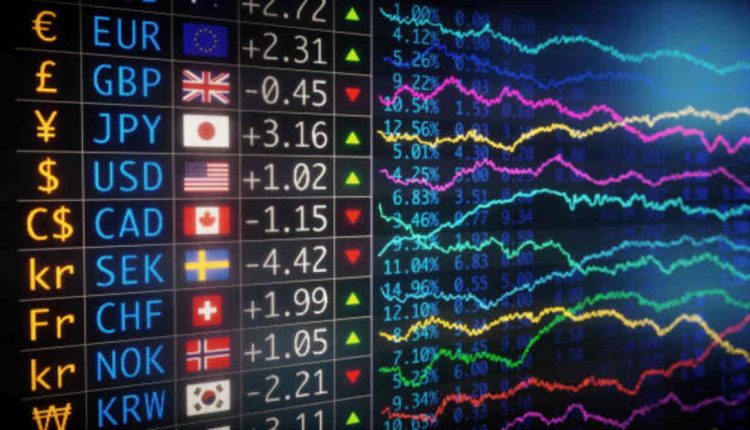Currency exchange rates fluctuate frequently, and this should be monitored closely. These fluctuations may be affected by various economic, political, and psychological conditions that impact them. Choose the best forex robot.
Dynamic Currency Conversion, or DCC, gives you a clear idea of the cost of transactions in your home currency before using your card. Unfortunately, DCC often proves more costly due to less favorable exchange rates and additional fees added to transactions processed using local currencies.
Universal Currency converters
Universal Currency converters are digital tools designed to quickly calculate the exchange rates between foreign and home currencies, making life easier for travelers and businesses engaging in international trading, keeping up-to-date on real-time exchange rates, and helping minimize risks and maximize profits through accurate conversion rates. These converters also assist travelers and companies in staying abreast of real-time exchange rates – which is invaluable when traveling or engaging in international commerce.
These tools can be found across a range of platforms, such as websites and mobile apps. Convenient and accessible, they allow traders to make trades whenever it suits them—even while on the go! They are incredibly accurate yet user-friendly, making them a valuable addition to any trader’s arsenal.
Universal currency converters offer accurate exchange rates by drawing upon an extensive network of financial institutions and data providers. They provide up-to-the-minute results with no costly mistakes. Users should keep in mind, however, that certain conversion services may apply a small margin that can drastically change final results.
Customers using universal currency converters should conduct research into each platform’s rates before selecting one. They should also consider which currencies each tool supports and any additional features it might offer to maximize the value of their investment. This will ensure they maximize their returns.
Conversion rates
Currency conversion rates provide an accurate reflection of how much one currency is worth in another currency, determined by market forces that influence the supply and demand of currencies in circulation. Such forces may include economic policy, interest rates, trade balances, or perceived inflation risk in each country – meaning the value of one currency may fluctuate widely from day to day.
Conversion rates depend on your country of residence and are often quoted in relation to the US dollar. Common exchange rates include the euro, yen, pound sterling, and Australian dollars. It is always essential that you know your conversion rates before beginning to shop for currency conversion rates.
Using appropriate exchange rates can save money when making international money transfers. Most banks charge hidden markups on foreign exchange fees; with Wise, you’ll get the real, mid-market exchange rate. To find the appropriate rate, it is best to research it online or at a local bank/currency exchange service.
If a data source doesn’t support currency settings, you can manually set one. Causal will then convert all values connected with this source into the variable-set currency; for example, if a dataset connects to one with EUR currency settings, its values will be converted to USD automatically.
Currency convertibility
Currency convertibility is an integral component of fixed exchange rates as it facilitates international trade and investment, promotes capital flows, enhances economic development, reduces exchange rate instability, and enhances economic growth and development. There are various types of currency convertibility; selecting one for a country depends on its financial situation and goals.
Full convertible systems allow currencies and commodities to be freely exchanged between themselves; however, this type of convertibility is uncommon due to restrictions and barriers imposed on foreign exchange transactions by many countries, such as exchange control regulations and quantitative or financial barriers to external trade transactions.
A country’s currency convertibility can be determined by its ability to attract investments from overseas and meet its foreign exchange needs more easily. To achieve this, it must maintain an appropriate balance of payments, hold sufficient international reserves, have an efficient market environment, and execute effective macroeconomic management.
Currency converters are online tools designed to enable comparisons of prices across currencies. Businesses and individuals alike can take advantage of them; some are free and support themselves through ads, while others require subscriptions or payments for full access.
Market forces
Market forces are an essential concept in economics that describes the interactions between buyers and sellers that determine the price of goods. Influencing factors include competition, consumer preferences, technological innovations, and economic growth. Furthermore, government regulations influence market forces, creating ripple effects throughout global economies that result in fluctuating exchange rates or other financial factors that affect pricing structures.
Currency converters use these factors to influence supply and demand for currencies. As soon as demand for one currency increases, its price will do as well – for instance, if a country’s interest rate policy leads to inflation, which prompts individuals or businesses to buy its currency to gain higher returns.
Conversely, when currency supply and demand balance out, the price can drop significantly—this is why understanding the market forces behind each currency is critical to making informed decisions about it. Heavy rains in Latin America or Southeast Asia may damage coffee and rice crops, leading to reduced supplies that then cause prices to increase; alternatively, an oil production surge may cause prices to decrease as more crude becomes available at lower costs for sale.
Understanding these forces is vital for businesses, investors, and consumers. It enables them to make better decisions and remain competitive in an ever-evolving market while mitigating unnecessary risks such as price fluctuations. Furthermore, understanding them allows businesses to seize new opportunities for economic development and prosperity.

